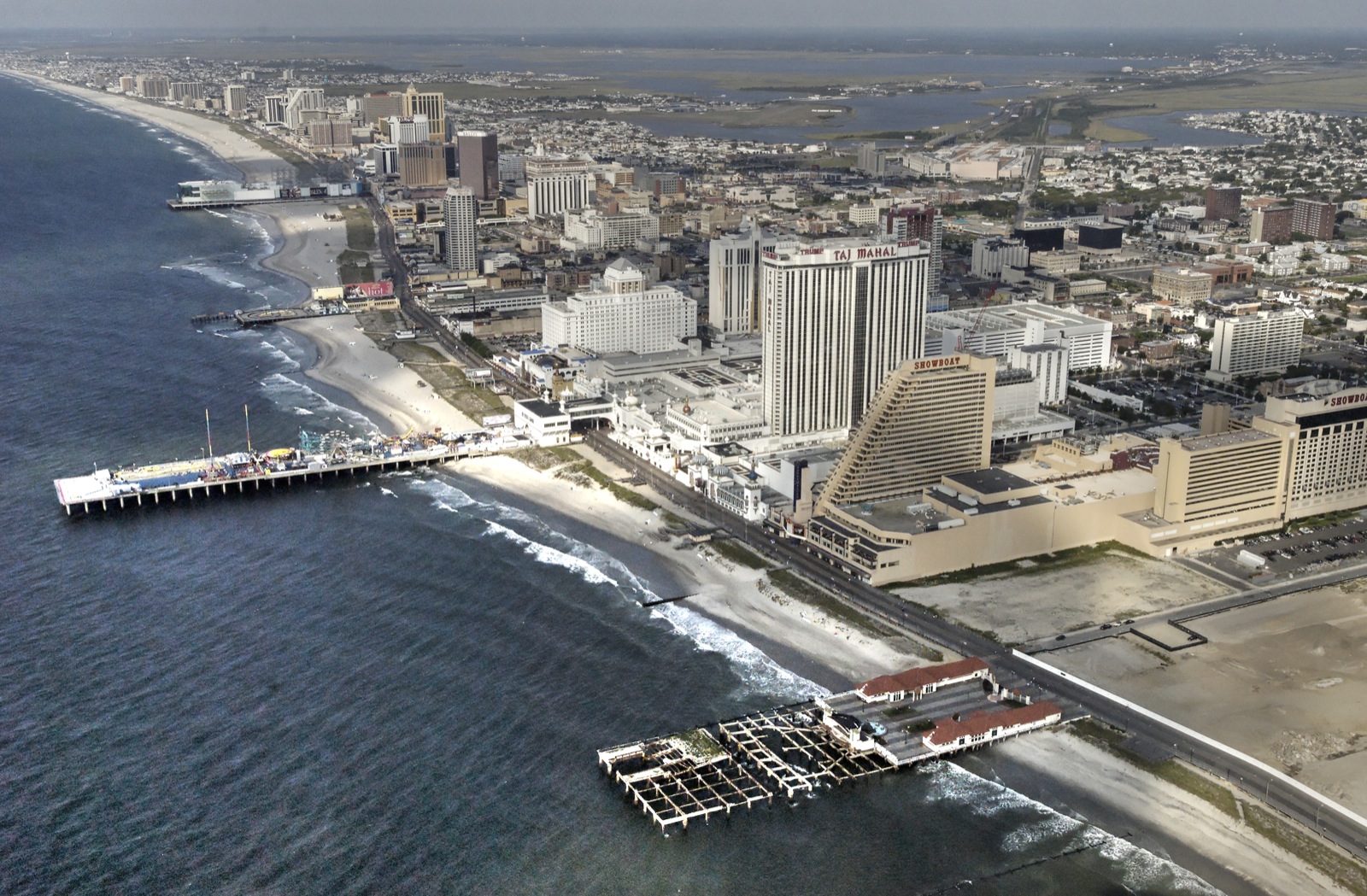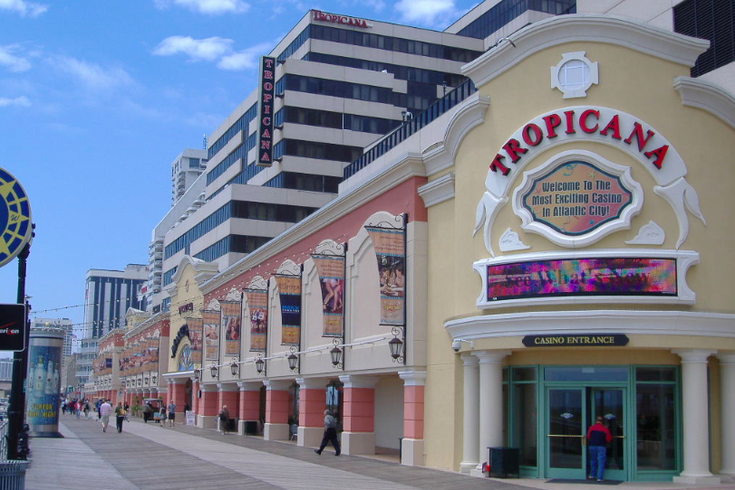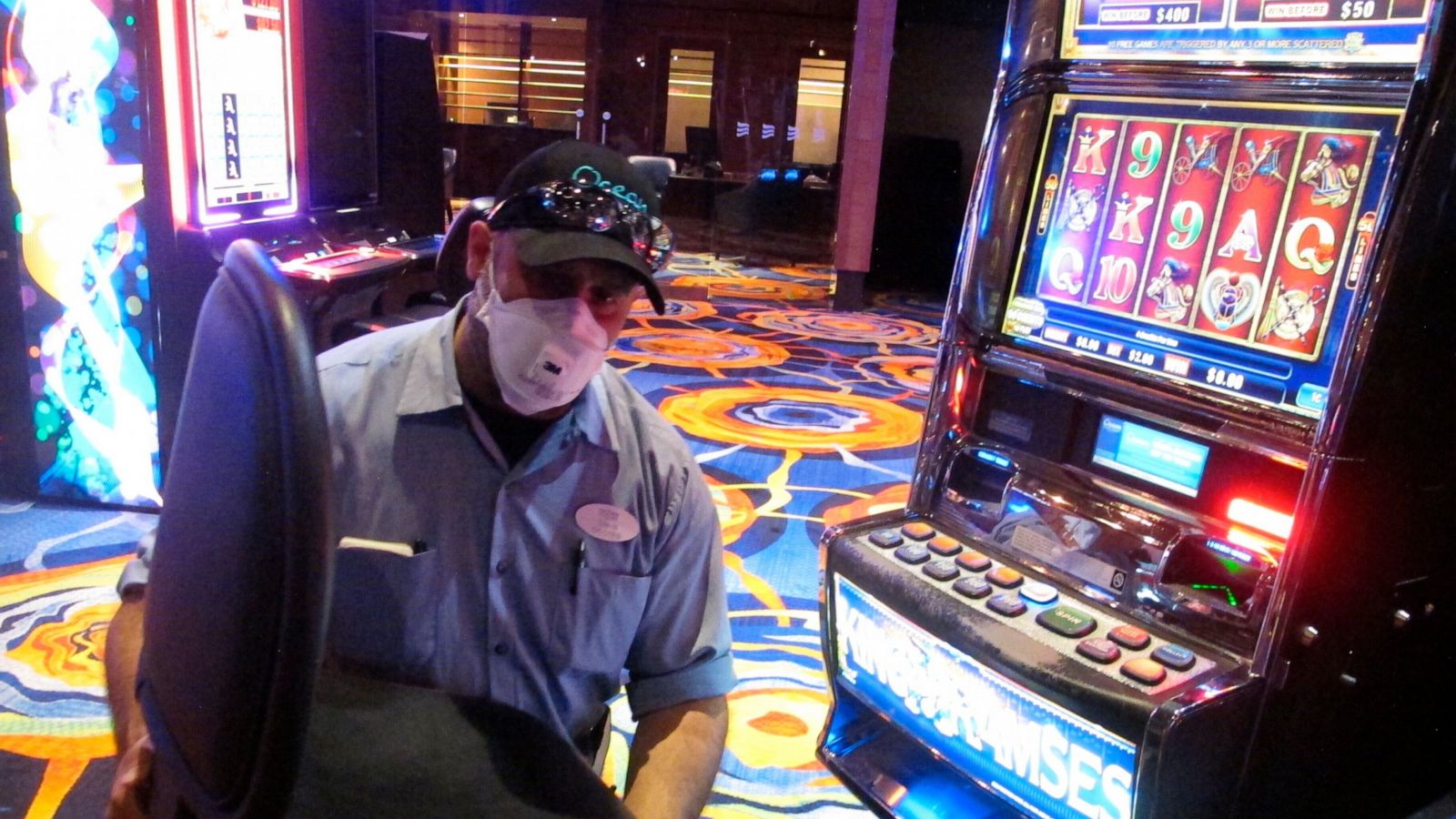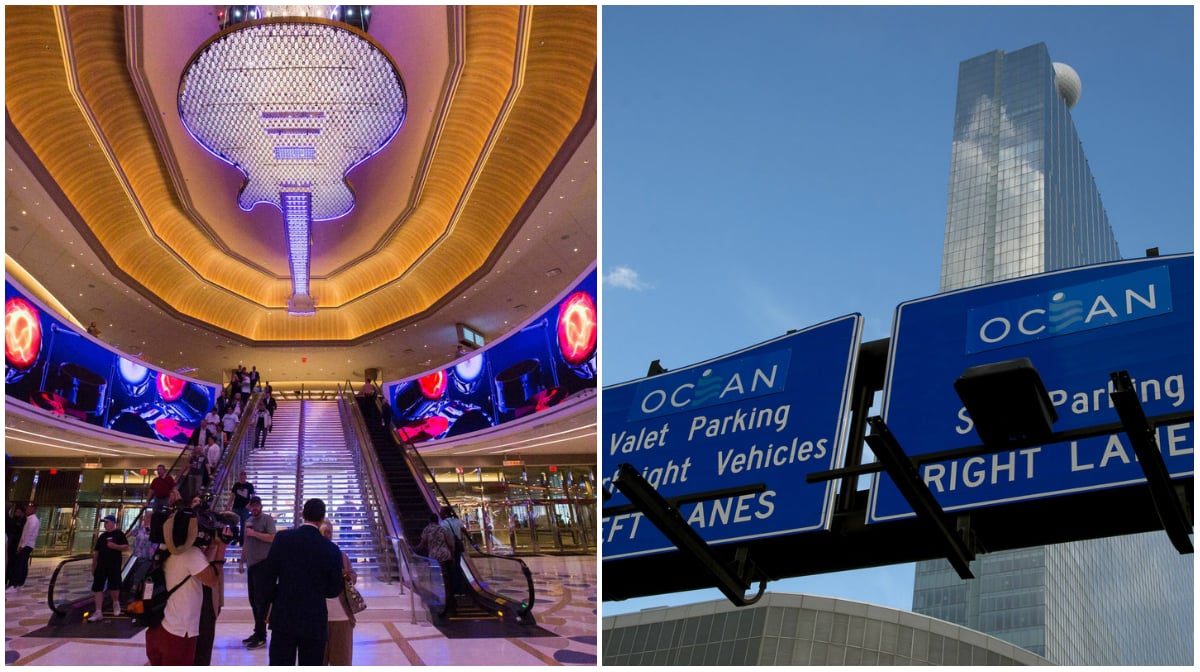- For example, winnings from casino betting and wagering, New Jersey Lottery winnings on prize amounts exceeding $10,000, winnings from slot machines, raffles, bingo games, etc., are all taxable income. Nonresidents may only offset gambling winnings from New Jersey sources by gambling losses incurred in New Jersey during the same tax period.
- Borgata Hotel Casino & Spa: Caesars Interactive Entertainment- Affiliate of Boardwalk Regency Corporation: Golden Nugget Atlantic City: Hard Rock Hotel & Casino: Ocean Resort Casino: Resorts Casino Hotel Atlantic City: Tropicana Casino Resort Atlantic City.
- Casino in the Park at Lincoln Park in Jersey City on Thursday, Aug. 3, 2017, before the venue closed in December of that year.
Jersey city Find detailed information on Gambling companies in Jersey City, New Jersey, United States of America, including financial statements, sales and marketing contacts, top competitors, and firmographic insights. Find Gambling local business listings in and near Jersey City, NJ. Get Gambling business addresses, phone numbers, driving directions, maps, reviews and more.

Do you feel an emotional high every time you win at an Atlantic City casino? Do you then feel like you can't stop playing? Maybe you don't – however, you might know a loved one that has trouble controlling their betting habits. There is no need to feel shame if you or a loved one suffer from disordered gambling. Many people throughout the country struggle with problem gambling. In fact, according to the National Council on Problem Gambling, about 2 million adults in the United States meet the criteria for this problem each year. If you live in Freehold, AC, or elsewhere in New Jersey and you or a loved one struggle with disordered gambling, call or text 800-GAMBLER. Seeking help for skill-based gambling – or any other type of disordered gambling, for that matter – is a sign of strength.
What Is Disordered Gambling?
Many factors contribute to this behavioral disorder. People might feel the need to chase the high that they experience when they win skill-based games. Sometimes, people may think that being a 'high-roller' gives them a certain desirable social status. Problem gamblers may even think that gambling can be a quick-fix solution for debt and other financial issues. Signs of a gambling problem include attempting to keep gambling activities secret, placing risky bets (especially when they're unaffordable), and having difficulty with controlling the frequency of gambling activity.
Hollywood casino buffet. Disordered gambling can sometimes be difficult to spot and, consequently, to diagnose. Unlike other behavioral disorders, like substance use disorders, problem gamblers often do not display any physical symptoms, meaning that their condition can often remain 'hidden.' The longer their condition goes untreated, the more it takes a toll on their mental health. To manage the anxiety or depression that they feel due to excessive casino gambling, problem gamblers may turn to substance use. If they do not acknowledge their disorder, they could end up bankrupt, in jail, or worse.
The Prevalence of Gambling in the Garden State
New Jersey is home to many casinos and other gambling facilities. The gambling destinations in Atlantic City, Monmouth, and numerous other locations in the state give residents ample opportunities to gamble. Communities in close proximity to casinos and other betting establishments have an increased risk for disordered gambling behavior. Whatever the cause of a gambling disorder may be, however, people can overcome their difficulties by seeking help for gambling in Atlantic City, Freehold, and Monmouth.
If you live in or near AC or anywhere else in New Jersey and feel as though you or a loved one struggle with skill-based gambling, reach out to us for support, treatment, and hope. Through our free and confidential hotline, 800-GAMBLER, anyone can find the help that they need for any kind of disordered gambling. Our compassionate representatives will connect you with resources for overcoming problem gambling behaviors. Many different programs and services, like professional counseling, self-exclusion programs, or local Gamblers Anonymous meetings in New Jersey. No matter how insurmountable the situation may seem, recovery is possible. Help is only a phone call away.

Some people refer to disordered gambling as the 'hidden addiction.' Unlike individuals that struggle with substance use disorders, problem gamblers often show no obvious physical signs or symptoms. On top of that, they may refuse to seek help out of shame or fear of judgment. Bangor slots maine. Some people might not be able to admit to themselves that they have a gambling problem – even after they have lost all their savings due to excessive skill-based gambling in Atlantic City, NJ.
Thousands of NJ residents struggle with problem gambling every day. To help these individuals, the Council on Compulsive Gambling of New Jersey (CCGNJ) provides numerous programs and services designed to aid their recovery. People from Freehold, Monmouth, Marlboro Township, Atlantic City, and elsewhere throughout the state can easily access their resources. Blackjack pizza littleton columbine co. In the process, they will find support and treatment that can help them ultimately conquer this 'hidden addiction' for good.
What Is Disordered Gambling?

Gambling disorder – frequently referred to as 'gambling addiction' – refers to an almost uncontrollable urge to gamble, despite the consequences it has on one's health, happiness, or financial security. Activities that involve gambling trigger the brain's system in much the same way alcohol and drugs do. If left untreated, problem gambling can lead to bankruptcy, imprisonment, or even suicide.
Disordered gamblers can range from military veterans with a gambling problem in Freehold, NJ to elderly folks who spend their life savings on gambling in Monmouth, NJ. Anyone could potentially become a problem gambler; however, there are certain factors that can increase their vulnerability to such behavioral disorders. People with this disorder often use gambling as a respite from the symptoms of mood disorders like depression and anxiety. Others simply have a greater tendency towards disordered gambling due to genetics.
Problem gamblers tend to go to great lengths to hide their gambling activities from friends and family. They may start to act uncharacteristically. Feelings of shame may cause them to lie and jeopardize the trust in their relationships. They might be more irritable, restless, or depressed. Sometimes, disordered gamblers may even resort to fraud or theft in an attempt to cover up or undo the damage they have inflicted on their finances. No matter how hopeless or trapped they may feel, however, recovery is possible.


Do you feel an emotional high every time you win at an Atlantic City casino? Do you then feel like you can't stop playing? Maybe you don't – however, you might know a loved one that has trouble controlling their betting habits. There is no need to feel shame if you or a loved one suffer from disordered gambling. Many people throughout the country struggle with problem gambling. In fact, according to the National Council on Problem Gambling, about 2 million adults in the United States meet the criteria for this problem each year. If you live in Freehold, AC, or elsewhere in New Jersey and you or a loved one struggle with disordered gambling, call or text 800-GAMBLER. Seeking help for skill-based gambling – or any other type of disordered gambling, for that matter – is a sign of strength.
What Is Disordered Gambling?
Many factors contribute to this behavioral disorder. People might feel the need to chase the high that they experience when they win skill-based games. Sometimes, people may think that being a 'high-roller' gives them a certain desirable social status. Problem gamblers may even think that gambling can be a quick-fix solution for debt and other financial issues. Signs of a gambling problem include attempting to keep gambling activities secret, placing risky bets (especially when they're unaffordable), and having difficulty with controlling the frequency of gambling activity.
Hollywood casino buffet. Disordered gambling can sometimes be difficult to spot and, consequently, to diagnose. Unlike other behavioral disorders, like substance use disorders, problem gamblers often do not display any physical symptoms, meaning that their condition can often remain 'hidden.' The longer their condition goes untreated, the more it takes a toll on their mental health. To manage the anxiety or depression that they feel due to excessive casino gambling, problem gamblers may turn to substance use. If they do not acknowledge their disorder, they could end up bankrupt, in jail, or worse.
The Prevalence of Gambling in the Garden State
New Jersey is home to many casinos and other gambling facilities. The gambling destinations in Atlantic City, Monmouth, and numerous other locations in the state give residents ample opportunities to gamble. Communities in close proximity to casinos and other betting establishments have an increased risk for disordered gambling behavior. Whatever the cause of a gambling disorder may be, however, people can overcome their difficulties by seeking help for gambling in Atlantic City, Freehold, and Monmouth.
If you live in or near AC or anywhere else in New Jersey and feel as though you or a loved one struggle with skill-based gambling, reach out to us for support, treatment, and hope. Through our free and confidential hotline, 800-GAMBLER, anyone can find the help that they need for any kind of disordered gambling. Our compassionate representatives will connect you with resources for overcoming problem gambling behaviors. Many different programs and services, like professional counseling, self-exclusion programs, or local Gamblers Anonymous meetings in New Jersey. No matter how insurmountable the situation may seem, recovery is possible. Help is only a phone call away.
Some people refer to disordered gambling as the 'hidden addiction.' Unlike individuals that struggle with substance use disorders, problem gamblers often show no obvious physical signs or symptoms. On top of that, they may refuse to seek help out of shame or fear of judgment. Bangor slots maine. Some people might not be able to admit to themselves that they have a gambling problem – even after they have lost all their savings due to excessive skill-based gambling in Atlantic City, NJ.
Thousands of NJ residents struggle with problem gambling every day. To help these individuals, the Council on Compulsive Gambling of New Jersey (CCGNJ) provides numerous programs and services designed to aid their recovery. People from Freehold, Monmouth, Marlboro Township, Atlantic City, and elsewhere throughout the state can easily access their resources. Blackjack pizza littleton columbine co. In the process, they will find support and treatment that can help them ultimately conquer this 'hidden addiction' for good.
What Is Disordered Gambling?
Gambling disorder – frequently referred to as 'gambling addiction' – refers to an almost uncontrollable urge to gamble, despite the consequences it has on one's health, happiness, or financial security. Activities that involve gambling trigger the brain's system in much the same way alcohol and drugs do. If left untreated, problem gambling can lead to bankruptcy, imprisonment, or even suicide.
Disordered gamblers can range from military veterans with a gambling problem in Freehold, NJ to elderly folks who spend their life savings on gambling in Monmouth, NJ. Anyone could potentially become a problem gambler; however, there are certain factors that can increase their vulnerability to such behavioral disorders. People with this disorder often use gambling as a respite from the symptoms of mood disorders like depression and anxiety. Others simply have a greater tendency towards disordered gambling due to genetics.
Problem gamblers tend to go to great lengths to hide their gambling activities from friends and family. They may start to act uncharacteristically. Feelings of shame may cause them to lie and jeopardize the trust in their relationships. They might be more irritable, restless, or depressed. Sometimes, disordered gamblers may even resort to fraud or theft in an attempt to cover up or undo the damage they have inflicted on their finances. No matter how hopeless or trapped they may feel, however, recovery is possible.
Treatment and Recovery
The CCGNJ can help disordered gamblers recover by referring them to professional counselors. Through therapy, people can get a better understanding of the factors that led to their behavior and develop better coping methods for their urges. We also help problem gamblers find local Gamblers Anonymous meetings in the state of NJ. At these meetings, people that struggle with disordered gambling can open up to each other and share their experiences as they support each other on their path to recovery.
Gambling In Jersey City Nj
If you or a loved one suspect that you may be struggling with the 'hidden addiction,' call or text our free, confidential hotline, 800-GAMBLER. Whether you live in Atlantic City, Freehold, Marlboro Township, Monmouth, or elsewhere throughout the state, help is available. Reach out today for support, treatment, and hope.